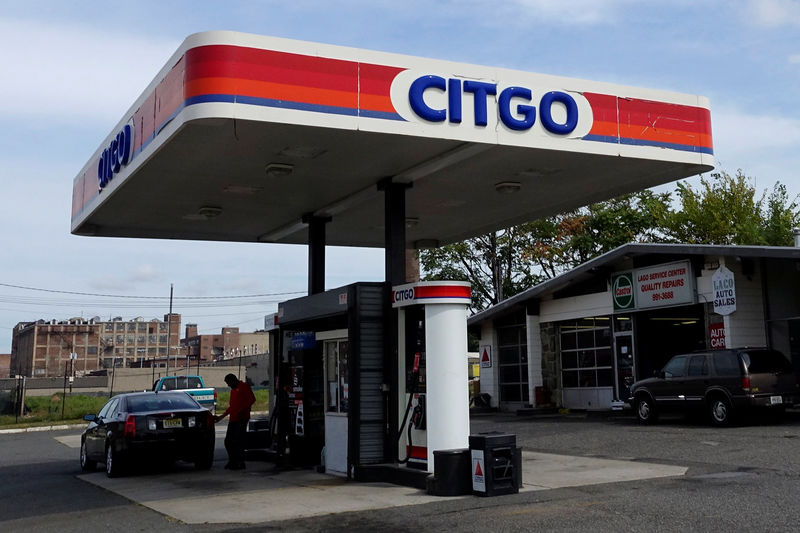By Corina Pons and Marianna Parraga
(Reuters) - Venezuelan opposition leader and self-proclaimed president Juan Guaido ordered congress on Monday to appoint new boards of directors to state oil company PDVSA and U.S. subsidiary Citgo, shortly before the United States imposed sanctions on the firm.
The moves were aimed at intensifying pressure on President Nicolas Maduro, who was re-elected last year in a contest widely seen as fraudulent.
Guaido proclaimed himself president last week, but without a source of revenue or control of the military, he faces difficult odds in assuming the post, despite support across most of the Western Hemisphere.
Guaido, who has not yet appointed a Cabinet, faces the intricate legal challenge of nominating new leadership for PDVSA and its subsidiaries, including Citgo Petroleum, who would manage the companies during a transition.
The White House's measures to freeze PDVSA's U.S. assets, including proceeds from oil exports, and limit the company's transactions are an attempt to largely cut off Maduro's access to oil revenue that accounts for most of the country's income in hard currency.
U.S. refineries in the United States can receive Venezuelan oil already paid for and currently at sea, Treasury Secretary Steven Mnuchin said.
"If the people in Venezuela want to continue to sell us oil, as long as the money goes into blocked accounts we will continue to take it. Otherwise, will we not be buying it," Mnuchin told reporters in Washington on Monday.
U.S. national security adviser John Bolton said the sanctions would block $7 billion in PDVSA's assets "plus over $11 billion in lost export proceeds over the next year."
It is unclear if Venezuela will continue selling oil to customers in the United States.
Venezuela exports about 500,000 barrels of oil daily to the United States, mostly to Citgo and refineries owned by Valero Energy Corp (N:VLO) and Chevron Corp (N:CVX). The country's production has dropped in recent years to about 1.4 million barrels a day because of economic mismanagement and lack of investment.
Maduro remains in control of the country because of support from the military, despite massive protests against his government amid an economic crisis that has caused millions to flee the country. Many people are going hungry, while inflation has skyrocketed and left basic goods unaffordable.
'TRYING TO DO SOMETHING'
The sanctions do not prohibit deals between PDVSA and major U.S. oil-companies operating in Venezuela, including Chevron, Halliburton Co (N:HAL) and Schlumberger NV (N:SLB). It does, however, prevent U.S. firms from exporting certain oil products Venezuela needs to blend with its own crude for sale elsewhere.
Attempting to redirect funds to Guaido's team could give him maneuverability in the short term as appointing new boards at PDVSA and Citgo could take a long time, according to experts.
Frank Holder, the head of Berkeley Research Group's Latin American practice, said Guaido could face difficulties in appointing a Citgo board against the wishes of its parent.
But Guaido's team may try a number of things, even if they are unlikely to work, because "politically it shows he is trying to do something, that he has power," Holder said.
The United States imposed sanctions on Venezuela and PDVSA in 2017 that prevented Citgo from repatriating dividends to its parent company. Citgo had about $500 million in cash at the end of September, according to a creditor who spoke to Reuters last week, and $900 million in available credit.
Citgo also faces a July deadline to refinance its revolving credit, a task that could be delayed because of sanctions affecting the subsidiary's ability to access to credit.
